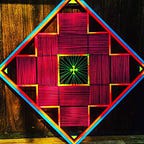Meet the Director: José Huamán Turpo
At the Ayni Institute, we are committed to the “Mysteries of the Andes” documentary film series because we believe deeply in the vision of its creators, José Huamán Turpo and Alejandrina Calancha Monge.
Now we want to give you all an opportunity to learn more about our friends, elders, and collaborators. Here we’ll share about Jose’s background and interweave pieces of an interview we did with him not too long ago. Next time, we’ll do the same for Alejandrina. Keep reading — and stay tuned!
José Huamán Turpo, the co-founder and director of the “Mysteries of the Andes” project, is an indigenous filmmaker from Cusco, Peru with over forty years of professional filming experience.
José began his career in cinema by teaching himself before formally studying television production in university. He then launched a successful career as a photographer and cameraman in the international press of the southern countries of Latin America.
“Working in the international press for many years, what impacted me most was the traveling. I saw the formation of dominant groups who controlled their fellow human beings at their will. I saw the sickness of power and how governments developed social structures to increase their power. I saw poverty and inequality.”
These experiences led Jose to understand different types of political and social systems and moved him to start thinking more philosophically about the human condition and Mother Earth.
“I was motivated by the necessity of seeing reality and the opportunities to create something more tangible that would leave a legacy. All of this knowledge, if we don’t document it, if we don’t discuss it, we’re going to forget. It’s already happening — indigenous communities are forgetting. We need to relearn to value ourselves as human beings.”
These realizations led Jose to leave his comfortable job and use his many talents to create documentary films, including what we now call the “Mysteries of the Andes” series.
“This series is really about memory and oral history, about social and cultural imagination in different contexts. We work with indigenous peoples and we open the opportunity for them to express themselves, their wisdom, and their customs. Otherwise they’re losing them without any way to recuperate or revitalize their communities.”
José and Alejandrina do not make these films with the intent of making money. They live simply, together with extended family. They take this work — and the stories and experiences of the communities they collaborate with — very seriously.
“We’re doing the work that other institutions like UNESCO should be doing but they’re not. This work has human value, not monetary value. We aren’t discovering anything, we are simply making visible what’s already there so that more people can see the values and learn from them. As human beings, we must relearn how to live in community.”
The first three films in the “Mysteries of the Andes” series all took place within Peru: the Q’ero community in “Inkarri,” the K’anas communities in “Q’eshwachaka,” and the Huachipaeri, Machiguenga, Amarakaeri and Toyeri in “Voices that Heal.”
For the next film, José will travel to six different countries with a focus on sound and music, the relationship between humans and their musical instruments, and the symbolism of those instruments.
“We had to do this documentary about music because music connects us all. It is one way that memory is transmitted. What messages are we receiving and perceiving? What messages are indigenous communities sending us?
“There are musical instruments throughout Latin America. Each country, each community has their rites and rituals. What do these rituals mean for the community? We want to learn from them about health, healing and so much more.
“Musicians devote their lives to playing these instruments, they make them themselves, they transmit so much emotion through them. These are the people we want to be talking to in this documentary.”
As Jose continues his travels through Latin America, he will be sending us photos and film clips of his journeys. Most recently, Jose traveled to Bolivia to document a celebration of the Day of the Chakana [Southern Cross constellation] on May 3rd.
Will you help us to support José and Alejandrina? Donate here!
Interested but can’t donate? Contact Fhatima directly at fhatima@ayni.institute.
